|
Alleluia! The Lord is risen indeed: O come, let us worship! Our service of Morning Prayer, Bulletin, and Sermon this week can be found here: And our Songs for this week can be found here:
0 Comments
Scripture Readings: Acts 4:5–12 | Psalm 23 | 1 John 3:16–24 | John 10:11–18
“I am the good shepherd. The good shepherd lays down his life for the sheep.” (John 10:11) Today the Scripture readings offer this comforting image to contemplate: that Jesus Christ the Son of God is truly our Good Shepherd. That in the Risen Lord, the Living God continues to guide and guard His people, drawing them into His own abundant life. It is an image of God found all throughout the Old Testament, perhaps most commonly known in Psalm 23, which we recited together this morning. In many ways, this image reflects a common experience of God’s people… those moments when we recognize the LORD’s mercy and power at work: providing exactly what we need, protecting us from harm, and making His presence known in ways that fill us with peace. In these times, along with the Psalmist, it’s good for us to give thanks and rejoice… to take joy in our Good Shepherd, who leads us into life. But there are also times in the lives of everyone, even God’s people, where instead of feeling secure, we feel lost and vulnerable… unsure of what to do, or how we will ever be able to carry on. And so there is this tension at work all through our lives: there are times we feel well tended to, and times we feel we’re walking in the valley of death’s shadow. But in the midst of this tension, we also find an invitation… a way being opened for us to receive far more than we might expect. Our Scripture readings this morning offer us two parallel stories which help to bring this invitation to light for us today. One story is a moment from the life of Jesus our Lord, revealing His merciful purpose and mission to seek and save the lost, and the second is from the life of two of Christ’s earliest followers, who were led by the Holy Spirit to share in the work of their Good Shepherd. In the Gospel of John we heard Jesus describing Himself with this image, painting a vivid portrait of what He had come to do… knowing His own ‘sheep’ intimately, binding them together in one united flock, and loving them to the point of laying His own life down for them. It is a powerful, and beautiful picture of holy love in action, drawing on all sorts of biblical ways of speaking of God’s care for His people. But Jesus is doing more here than simply offering a poetic picture of His ministry… He’s driving home the difference between what He was doing… bringing the blessed kingdom of God into this broken world… and what the other leaders and guides of God’s people were really up to. In short, He’s not just calling Himself the Good Shepherd … He’s also calling out all the “Bad Shepherds” as well. Our reading today from John’s Gospel, comes from Chapter 10. But the reason Jesus says what He says here starts back in Chapter 9. John Chapter 9 is a powerful story of a life completely transformed… full of both surprising joy, as well as painful rejection. The story begins when Jesus and His disciples meet a man one day who we could call one of the lost “sheep” of Israel: he was a Jewish man, who had been born completely blind. By birth he was part of the chosen covenant people of Israel, yet because of his blindness he was cut off from the life of his community. We don’t have time today to look at this part of Christ’s story in detail, but I just want to highlight a few of the points that stand out for us this morning: First off, as I have already said, the man had been blind from birth. He had never known a time when the world was not in darkness. The disciples saw this man and took note of his suffering, and in line with the assumptions of many (in their day, and our own) thought that the man’s misfortune was the result of someone’s sin… they thought that someone either the man himself, or his parents, must have done something horrible to deserve a life without sight. But Jesus doesn’t assign blame to anyone for the man’s suffering… instead He points to what God His heavenly Father had sent Him to do: In John Chapter 9:3-5 it says, “Jesus answered, “Neither this man nor his parents sinned; he was born blind so that God’s works might be revealed in him. We must work the works of him who sent me while it is day; night is coming when no one can work. As long as I am in the world, I am the light of the world.” Then Jesus spat in the dirt, made some mud, put it on the man’s eyes, and told him to go and wash them. And when he had done what Jesus said, the man received his sight. Surely this was God’s kingdom breaking out into the world… offering life and light to one who had never known them before. Yet as John Chapter 9 plays out, we find that not everyone sees it this way: the Pharisees, a devout and influential group within the wider Jewish community, who saw it as their calling to pursue the purity of God’s people, began to interrogate the man about what had happened to him… looking for ways to discredit Jesus, whom they saw as a false shepherd… someone who was leading God’s people away from faithfulness to the LORD and His holy commandments. I’ll leave it to you to read the rest of John chapter 9 this week, but ultimately, the healed man, under a lot of pressure, refuses to turn his back on the one who had restored him. As a result, he is rejected by these powerful Pharisees, gets kicked out of their synagogue, and so is cut off again from his neighbours. He had received his sight, but in the end we find him, once again, alone in the darkness. But that is where we’re told, the Good Shepherd finds this lost sheep, rejected by all around him, but precious in God’s sight. Jesus hears all that had happened, and then He searches for that man, finds him, and invites the man… to trust Him. Christ seeks him out, and draws him into a community of faith… into a new life brought about by the mercy and power of God. The Pharisees, who had assumed for themselves the role of guiding God’s people… of tending His flock, proved that they didn’t actually care about the man, or about God’s kingdom at work in their midst, but only about themselves. About preserving their own influence, positions, and power. They refused to believe the miracle, to place their trust in Jesus… who then responds by saying these words to them, and to all: “I am the good shepherd. The good shepherd lays down his life for the sheep. The hired hand, who is not the shepherd and does not own the sheep, sees the wolf coming and leaves the sheep and runs away— and the wolf snatches them and scatters them. The hired hand runs away because a hired hand does not care for the sheep. I am the good shepherd. I know my own and my own know me, just as the Father knows me and I know the Father. And I lay down my life for the sheep.” (John 10:11-15) Faced with what just happened to their fellow Jew who had received his sight, Christ calls out the Pharisees, and all those who were claiming to care for God’s children, but who were really only taking care of themselves. But unlike the hirelings who left the sheep to fend for themselves, Jesus is the Good Shepherd we can truly depend upon. He’s is not interested in using us, but in rescuing us… loving us to the point of laying down His life on the cross… and rising again to share with us His own abundant life. In the centuries since these stories took place, there have been plenty of examples of people claiming to care for God’s people, but who were only acting like hirelings… or worse, Bad Shepherds… that is, caring mostly about their own position and power. Today some easy targets come quickly to mind: like those who preach the so-called Prosperity Gospel… the dangerous lie that following Jesus means we should always be happy and healthy… especially if we give our money to fund their private ministries. Perhaps we can also call to mind some Christian leaders, from every corner, who seem far more caught up with preserving their own influence and rules, than they are in building up the lives of their sisters and brothers in the Lord. As easy, and tempting, as it is to point out the failures of others, in all honesty, this passage rings loudly in my own ears. As your pastor, your shepherd, caring for you in service to our Lord, Christ’s words here remind me of the high calling it is to tend to God’s children, and they also remind me of the many ways that I have fallen short… when I’ve acted more like a hireling, looking out for my own interests, instead of practicing the self-giving love of our Good Shepherd. Especially this year, when so many are feeling lost, afraid, vulnerable, and scattered, there are many ways I have missed the mark among our St. Luke’s family. But setting aside for the moment at least, my role as your priest and pastor, this is the calling of all who would follow Jesus Christ: the call to care for one another in our common life… to take our part in Christ’s ongoing mission of mercy and love. As the author of 1 John puts it: “We know love by this, that he laid down his life for us— and we ought to lay down our lives for one another… Little children, let us love, not in word or speech, but in truth and action.” (1 John 3:16,18). A Christians, we can all reflect on how we’re to live out this self-giving love, and what might need to change in us if this love is to carry us forward. But the Good News for us today is not about how good we are… you and I have not been left alone, either to fix ourselves up, or to wallow in regret… the Good News is our Good Shepherd’s here. Jesus, our Risen Saviour is here. In all the moments we find ourselves in darkness, He is here. In all of our times of tragedy, Jesus is here. In all of the pits we’ve dug for ourselves, Jesus is here. The Good Shepherd has come for us, has laid down His life for us, not to heap on shame, or reject us, but to draw us all into His flock. To gather us all together into God’s family, the Church, where we can all grow together in the ways of His holy love. Where we can all find forgiveness, lasting hope, and God’s new life, even when we find ourselves in the valley of death’s shadow… and where we are empowered to share in Christ’s own mission of mercy. The invitation we’re given today, in the midst of life’s joys and sorrows, asks us to keep on placing our trust in Jesus, our Good Shepherd. To believe that he is with us even when we feel cut off and alone… that he will never abandon us, but will bring us safely home. Which leads us at last to our second story, from Acts Chapter 4, where two of Christ’s Apostle’s St. Peter & St. John give us a powerful picture of what it means to trust in our Good Shepherd. Last week we heard how Peter & John had performed a miracle in Jesus’s name: healing a fellow Israelite who was unable to walk from birth… echoing loudly the act of mercy they had seen Jesus perform with the man born blind, which we have just discussed… an act revealing Christ’s love, and God’s good kingdom breaking in. But now, instead of the healed man being hauled before the ‘Bad Shepherds’, this time it’s the disciples who are being confronted and questioned… not by the Pharisees this time, but by the High Priestly family, including those who had led the way for Jesus Himself to be crucified. These were the people who were the official “shepherds” of Israel at the time… and again, they show their true colours by how they respond to this wonderful sign. They sense a threat to their own positions and influence, and they panic. They threaten St. Peter & St. John, and pressure them to stop teaching and speaking in Jesus’ name. But St. Peter speaks out and refuses to back down, reminding them that the one they rejected and crucified, God raised from the dead, and that “There is salvation in no one else, for there is no other name under heaven given among mortals by which we must be saved.” (Acts 4:12). St. Peter trusted that Jesus the Risen Lord would not abandon him, even as he faced the possibility of his own suffering and death. And as the story goes on, because of this miracle and the Apostle’s faithful witness, another 5,000 people placed their trust in Jesus as well, and joined the growing flock of the newborn Christian Church. We know of course, that the story of these Apostles goes on from here, and that they would face many times of suffering, persecution, and even death because of their commitment to sharing the Good News of Jesus, the Risen Lord. But through it all, their Good Shepherd remained with them always, and through their witness and work people from nations all over the earth have been drawn into the one flock of Christ, including you and I. Along with them, we are invited to trust in this Good Shepherd: when we sense His abundant life bursting in like the men who were born blind and unable to walk, yet who were made suddenly whole… or when we are under pressure, like the man in John Chapter 9, or St. Peter and St. John… or when we feel overwhelmed by the tragedies of life, or by our own failures. Through it all, Jesus Christ, God’s Good Shepherd who loved us and laid down His life for us, remains with us, and we can trust Him to lead us into God’s own life forever. So today, may we take comfort in His constant mercy and care. May we be empowered by His Spirit of love to look after one another, and to stay true to Him, when we too are under pressure. And may we follow Him and share in His mission to seek and save the lost, that all the world might become one flock, under Christ, the one true Good Shepherd. Amen. Alleluia! The Lord is risen indeed: O come, let us worship! Today (Easter IV) is sometimes called Good Shepherd Sunday (inspired by the content of our Scripture readings for the day), reminding us that the Risen Lord still lovingly leads and cares for His people, having laid down His life for us all, in order to draw us together into the one flock of our Heavenly Father. Our service of Morning Prayer, Bulletin, and Sermon this week can be found here: And our Songs for this week can be found here: Scripture Readings: Acts 3:12–19 | Psalm 4 | 1 John 3:1–7 | Luke 24:36b–48
“See what love the Father has given us, that we should be called children of God; and that is what we are.” 1 John 3:1 The children of God. This image sounds so lovely; but what does it actually mean? Or rather, how do the Holy Scriptures want us to understand it? There is a general way we could speak of being God’s children, as a way of affirming the connection all of creation shares with its Creator. In this sense, we’re all God’s children. We all owe our existence to God’s creative initiative, and so in a way we all can feel a sense of belonging to God, and together. In a general sense, this way of talking of being God’s children isn’t wrong… but it’s also not what the author of 1 John is talking about. For the author of 1 John, being called a child of God is not at all an abstract idea about the nature of all humanity… but rather, it describes a unique relationship with the Living God, in which our connection to Him has been reconciled… reunited… re-created. In other words, we are dealing here with another facet of the New Reality brought about through the death and resurrection of Jesus, the Son of God. In our Scriptures readings today, we are again invited to trust that in Christ’s death and resurrection the Living God, Father, Spirit, and Son, is at work re-creating His family… through the gift of forgiveness. The idea of being God’s children goes way back to the early days of Israel, when the LORD set out to rescue them from oppression in Egypt. Though the LORD had bound Himself to the family of Abraham centuries before, it’s not until God commissions Moses that they’re spoken of as God’s offspring: In Exodus 4:21-22, God sends the reluctant Moses to speak on His behalf and demand that Pharaoh, the King of Egypt, let Israel go. While to Pharaoh they were merely slaves, his own property, the Living God saw things very differently: “Then you shall say to Pharaoh, ‘Thus says the Lord: Israel is my firstborn son.” This one group of oppressed slaves was being claimed by the LORD of all the earth. Regardless of how the world saw them, God saw them as His children. After their rescue from Egypt, the relationship between God and His covenant people grew even deeper, as God began to make known what being in God’s family looks like. In the context of the Laws that set out how Israel was to live, the book of Leviticus sums up the underlying purpose of their whole way of life: “For I am the LORD who brought you up from the land of Egypt, to be your God; you shall be holy, for I am holy.” (Leviticus 11:45. See also Leviticus 19:2, 20:7, and 20:26). They were to be shaped by God’s own life, His character, goodness, and holy love, which was to transform their own private lives, and how they treated each other. As a parent adopts a child, and brings them up to share in their way of life, the LORD had rescued Israel to share His holy life with them… so they could grow to be like Him. The book of Deuteronomy sheds even more light on the subject, making clear the connection between being God’s children and ongoing faithfulness. In Deuteronomy chapter 7 we hear these words addressed to Israel: “For you are a people holy to the Lord your God; the Lord your God has chosen you out of all the peoples on earth to be his people, his treasured possession. It was not because you were more numerous than any other people that the Lord set his heart on you and chose you—for you were the fewest of all peoples. It was because the Lord loved you and kept the oath that he swore to your ancestors, that the Lord has brought you out with a mighty hand, and redeemed you from the house of slavery, from the hand of Pharaoh king of Egypt. Know therefore that the Lord your God is God, the faithful God who maintains covenant loyalty with those who love him and keep his commandments, to a thousand generations, and who repays in their own person those who reject him. He does not delay but repays in their own person those who reject him. Therefore, observe diligently the commandment—the statutes and the ordinances—that I am commanding you today. (Deuteronomy 7:6-11). And again in chapter 14: “You are children of the LORD your God… you are a people holy to the LORD your God; it is you the LORD has chosen out of all the peoples on earth to be his people, his treasured possession.” (Deuteronomy 14:1-2). Though all humanity, and creation ultimately belong to Him, there was something special about the LORD’s connection to this one family. The Living God had rescued Israel, and had adopted them to be His chosen children, and called them to share His life… to become like Him here on earth, shaped by His own holy love, and to be faithful to their Heavenly Father, who had always been faithful to them. As the author of 1 John would state many centuries later, the lives of God’s children were to be marked by His righteousness, completely incompatible with wickedness or sin. Yet the story of Israel, found throughout the Holy Scriptures, right from the start, serves as a sober reminder of how quickly God’s children can turn away; rejecting the One who had come to save them, and share His blessed life with them. This sad storyline leads us all the way to our reading today from the book of Acts, to St. Peter’s words addressed to his fellow Israelites standing just outside God’s Temple. The first few chapters of Acts recount how after Easter, the Risen Lord had ascended to the right hand of the Father, in Heaven, and had sent the Holy Spirit of God to indwell, empower, and unite all those who placed their faith in Him, at the feast of Pentecost. This led, as we heard last week, to all the first Christians actually living out the ancient calling to be God’s family: sharing their lives, their resources, and caring for one another in holy love… day by day, drawing others into this new way of life. One day, St. Peter and St. John were heading to the Temple to worship God, when they came across a man who had been unable to walk ever since he was born. Here they saw someone from their own people, their own family, cut off from the place of deep connection with God and their Jewish neighbours: that is, the Temple. Due to his disability, the man was unable to enter into the Temple, and instead of sharing in the family blessings of God’s people, he had to resort to begging from his neighbours every day. But if we read Acts chapter 3 we’re told that St. Peter and St. John did something that many of us today have a real hard time with when we come across one of our neighbours who is struggling and in need: “Peter looked intently at him, as did John, and said, ‘Look at us.’” (Acts 3:4). They refused to look away from his painful situation, and instead, they made an effort to make a connection with him. In short, they treated him like a brother, instead of as a stranger. But then we’re told they did something even more astounding: “Peter said, “I have no silver or gold, but what I have I give you; in the name of Jesus Christ of Nazareth, stand up and walk.” And he took him by the right hand and raised him up; and immediately his feet and ankles were made strong. Jumping up, he stood and began to walk, and he entered the temple with them, walking and leaping and praising God. All the people saw him walking and praising God, and they recognized him as the one who used to sit and ask for alms...” (Acts 3:6-10). Just as Jesus Himself had done so many times before, now the disciples, filled with the Holy Spirit were bringing God’s re-Creation to light… restoring broken bodies, raising up those who were suffering, offering the gift of new life all in Jesus’ name. They were sharing in Christ’s own mission to rescue God’s shattered world… bearing witness to all that Christ has done to bring God’s reconciliation to His unfaithful children, and to all the earth… by giving us forgiveness. That day, St. Peter and St. John were living out the New Reality of the Resurrection, which we heard from Jesus Himself in our Gospel reading this morning. Luke 24:44-48, “Then [Jesus] said to them, “These are my words that I spoke to you while I was still with you— that everything written about me in the law of Moses, the prophets, and the psalms must be fulfilled.” Then he opened their minds to understand the scriptures, and he said to them, “Thus it is written, that the Messiah is to suffer and to rise from the dead on the third day, and that repentance and forgiveness of sins is to be proclaimed in his name to all nations, beginning from Jerusalem. You are witnesses of these things.” All throughout the story of Israel, God was always at work preparing a way for the ultimate, worldwide rescue mission: that for the sake of all nations, Israel’s Messiah would suffer and die, and then be raised again… kickstarting God’s re-Creation… and then “repentance and forgiveness of sins is to be proclaimed in his name to all nations, beginning in Jerusalem” and from there to the ends of the earth. As witnesses of these things, St. Peter and St. John encountered that man, and invited him to share in God’s New Creation in Jesus’ name, which leads us to the rest of Acts chapter 3 which we heard today… Where these two Apostles point beyond themselves to the power of Israel’s God at work… whom Israel had rejected by crucifying His Son. Acts 3:13-16, “The God of Abraham, the God of Isaac, and the God of Jacob, the God of our ancestors has glorified his servant Jesus, whom you handed over and rejected in the presence of Pilate, though he had decided to release him. But you rejected the Holy and Righteous One and asked to have a murderer given to you, and you killed the Author of life, whom God raised from the dead. To this we are witnesses. And by faith in his name, his name itself has made this man strong, whom you see and know; and the faith that is through Jesus has given him this perfect health in the presence of all of you.” The miracle of this man having his body completely restored becomes a sign for the full restoration that Israel needed as well. They too were cut off from full fellowship with their faithful God by the same sin and unfaithfulness that had led them to reject Jesus... God’s ‘servant’… or as this word in Greek is also translated God’s “child”. The righteous One who had completely shared in the life and holy love of the LORD, was rejected and crucified by the ones He came to save. By those who were called to be the children of God. It’s in this moment when the Good News of the Risen Lord breaks through. This moment, when the people’s sin and betrayal is being laid bare, that the Apostles share with them that all has not been lost. That despite their unfaithfulness, God’s goal from the very beginning was to rescue His wayward children, to restore their broken relationship, to fill them with His Holy Spirit, and share His holy love, so that, being forgiven, all the families of the earth might be reconciled to the LORD as well… that all of humanity might be called the children of God, through Christ. Through the forgiveness made possible for all in His precious blood, and in sharing the New Life of His resurrection. St. Peter goes on in verse 17: “And now, friends, I know that you acted in ignorance, as did also your rulers. In this way God fulfilled what he had foretold through all the prophets, that his Messiah would suffer. Repent therefore, and turn to God so that your sins may be wiped out, so that times of refreshing may come from the presence of the Lord, and that he may send the Messiah appointed for you, that is, Jesus, who must remain in heaven until the time of universal restoration that God announced long ago through his holy prophets” (Acts 3:17-22). Repent… turn to God so that your sins may be wiped out… as we await Christ’s return to bring universal restoration. Friends, the hope for Israel, for humanity as a whole… for you and I to truly be God’s children has come to us once and for all in Jesus Christ, the Risen Lord: the One at work re-Creating and reconciling us to the Living God… forgiving us, and shaping us with His holy love into the renewed family of God we were always intended to be. St. Peter himself was a living example of God’s re-Creating forgiveness at work: he had denied Jesus three times, but the Risen Lord had embraced him. We all have our own experiences of failure, and hopefully, of forgiveness too… of having relationships break down, and sometimes having them be remade. Our world today is in desperate need of this kind of re-Creation… of finding a way forward, away from all our brokenness. The Good News is, in Christ, the Living God has opened up this path for us: the path of forgiveness, and New Life. In Christ we find, that despite all of our failures and unfaithfulness, God longs to draw all of us into His restored family. In Christ not only Israel, but all of humanity are being invited to share in God’s own life of holy love. So may we share in His mission: making God’s forgiveness and New Life known in the name of Jesus, that through our witness, others might come to be called children of God. Amen. Alleluia! The Lord is risen indeed: O come, let us worship! Today we continue our celebration of God's New Creation coming to light in the world-changing reality of Resurrection of Jesus Christ. One of the most well-known but challenging elements of this New Creation is God's gracious gift of forgiveness as a whole new way of life. Beginning tomorrow (April 19 2021) the Diocese of Fredericton will be hosting an Eastertide series entitled "How Shall We Forgive?" where we can explore this topic together. For more information, or to register, simply click on the button below. Our service of Morning Prayer, Bulletin, and Sermon this week can be found here: And our Songs for this week can be found here: Scripture Readings: Acts 4:32–35 | Psalm 133 | 1 John 1:1–2:2 | John 20:19–31
“Jesus said to them again, ‘Peace be with you. As the Father has sent me, so I send you.’” (John 20:21) Holy Week is now behind us. The light of Easter has dawned, and God’s New Creation has been brought to life in the Risen Christ, inviting us to receive all that comes along with it. Today, the second Sunday of Easter one aspect of God’s re-Creation in Christ stands out for us to contemplate, as well as to take part in: Peace. God’s gracious gift of peace. What a precious thing peace is; so often sought and longed for, and always so sorely needed. Our Psalm today written centuries before the Resurrection of Jesus, used holy, sacred imagery to talk of its significance. “Oh, how good and pleasant it is, when brethren live together in unity! It is like fine oil upon the head that runs down upon the beard, Upon the beard of Aaron, and runs down upon the collar of his robe.” The anointing with oil was one of the ways that Israel’s priests, and High Priests like Aaron, the brother of Moses, were consecrated… set apart to stand before the Living God on behalf of the people, and teaching them to live God’s ways together in the world. The Psalmist poetically connects this priestly calling and role with kindred living together in harmony and peace. But today in our reading from Acts, we hear the dream of this poem coming to life in the light of the Resurrection. After the events of Pentecost, when the Holy Spirit was poured out on those who believed that Jesus is Risen, something remarkable happened: they actually lived together in peace. They “were of one heart and soul”, we are told, holding all things in common. Caring for one another to the point that none of them was in need. Imagine this: over 3,000 Israelites, gathered from all over the Roman world, were living in unity together because of their newfound faith in the Risen Lord. What a wonderful fulfillment of God’s rescue mission in motion! How can we share in this kind of living sign of God’s peace at work in the world? How can broken, messed up people really live together in peace? The Good News, not only for you and I, but for the whole Church and the wider world, is that this is God’s gift to us in the reality of the Resurrection: real reconciliation and peace is possible through the life of the Risen Lord. In our reading today from the Gospel of John, we are given a glimpse into that startling reunion between Christ and His frightened disciples. Confused and concerned by the death of their Lord, and the strange news from Mary Magdalene, the disciples had locked themselves away. But that didn’t stop Jesus from finding them, and offering these words: “Peace be with you.” This first meeting could have taken a whole different direction. After all, despite all their words of commitment, these men had all deserted their Lord. Though John tells us that one of them found the nerve to not look away while Christ hung on the cross, they had all fled while He alone suffered. In the end, they had all abandoned Him to die. Jesus could have arrived in their midst, and condemned them all for their unfaithfulness… but instead He comes announcing and offering them peace. Union, harmony… reconciliation. Offered unexpectedly as a gracious gift. For Israelites, like the first disciples, there was one place where this kind of peace was found: the Temple of God in Jerusalem was where amends were made… where peace between humans and the Living God was offered and received. Sacrifices were made there to atone for the sins and failures of the people. And the priests alone were the ones who were able to announce God’s forgiveness and peace. Of course, we know that Jesus was doing this kind of thing long before His crucifixion… in fact, offering forgiveness to sinners was one of the reasons the chief priests and the temple leaders hated Him. But something different is going on in light of His Resurrection. The crucified and Risen Jesus has accomplished, and offers something new: forgiveness and peace, atonement made possible through His own blood. In the letter of First John, which we heard today, Jesus is portrayed as the perfect sacrifice, renewing fellowship, unity, and peace, between us sinners and God by cleansing us from all sin with His own redeeming blood. But He’s also portrayed as our perfect High Priest; the One who stands before the LORD on behalf of humanity as our advocate, interceding for us, and empowering us to live God’s way in the world. Israel’s Temple, sacrifices, and priesthood, are all pointing us to Jesus, and they all find their fulfillment in the reality His resurrection makes possible: reconciliation, union, peace between God and sinners like us. Jesus, the Son of God gave up His life on the cross to make atonement for the whole world, and He lives again as serves as our eternal Advocate… pleading for us, and praying for us, even when we stumble into sin… offering God’s forgiveness, to all who trust in Him. We usually stop right here, with the announcement of this Good News that Jesus has died to reconcile us to God, once and for all. But this is precisely not the end, this is the New Beginning… this is God’s New Creation at work even now among us, and for His messed up world. Back to that first Easter, what does the Risen Lord do immediately after pronouncing peace to His bewildered disciples? He gives them all a mission… a share in His mission. “As the Father sent Me, so I send you...” Jesus says to them, and then He breathes God’s Holy Spirit, the same Spirit that was at work in Him, into them, and says these curious words: “If you forgive the sins of any, they are forgiven them; if you retain the sins of any, they are retained.” What is all this about? What is going on??? In a word, we’re seeing the fulfillment of God’s plan for His people Israel: That though the whole earth belongs to God, His covenant people were to be “a priestly kingdom and a holy nation” (Exodus 19:5-6), sharing in the fellowship of the Living God… living together in the light of His holy love… and making His goodness and mercy known to all people everywhere. They were to stand before God on behalf of the nations, that the LORD’s forgiveness and peace might be shared by everyone. They were to be the means by which God’s ways would be known in the world… and though this mission was taken up and completed by Jesus, the faithful and true Israelite, Christ is now, once again, creating a community to bring this mission to life in their midst. In short, through the disciples, God was re-Creating the priestly kingdom in the Church: a worldwide community shaped by God’s forgiveness and peace, to be shared with everyone through faith in the Risen Lord. At Easter, Jesus entrusted to His disciples a share in His own priestly role: pronouncing peace with God, and forgiveness of sins, in Jesus’ name, and through the Holy Spirit at work in them. They were to announce by their words and their way of life that in Jesus Christ the Risen Lord, the reality of reconciliation is now truly possible… overcoming all that divides us from God and from each other. This is the hope that the Psalmist had: a family living together in unity, set apart for the sacred ministry of embodying God’s peace. This is precisely what happened after the Holy Spirit empowered the first believers to live together in the reality of God’s forgiveness and holy love… drawing people to faith daily by living God’s way together. For many of us, this all sounds like some unachievable fantasy… completely removed from our experience of human relationships. And yes, it is all too easy to see our painful lack of peace… especially in those places where we long to see it the most: among our communities… in the Church, and our families… we can even see all sorts of divisions in our own selves. There’s so many broken relationships… so much anger, suspicion, and selfishness. How are we supposed to take seriously the possibility of peace… of unity, if we’ve never seen it in action? If we can’t even imagine it happening? “Blessed are those who have not seen and yet have come to believe.” (John 20:29) These are the words the Risen Lord spoke to Thomas, one of the Twelve disciples, who would not come to believe in the New Reality… in the Resurrection of Jesus, and all that comes along with it… until Christ came and met with him… opening his eyes and his heart to the truth. These words are also spoken to all of us who struggle to believe in the Good News that Jesus lives, and that He has opened up the way of peace, once and for all. These words are an invitation to faith… an invitation to trust that God is doing something beyond what we can expect or imagine, and that, even though we cannot clearly see how it might come about, God wants to bring His New Creation, His peace to light through you and me. In His death and Resurrection, Jesus offers God’s peace, forgiveness, and fellowship to us all. Through His Holy Spirit, He empowers us to truly be God’s people, to walk in God’s light, and to share in God’s great rescue mission. To be the community of those who have received forgiveness in Jesus Name, and who are now commissioned to share forgiveness too. In our life together: in our worship, fellowship, service, and even in our struggles and failures, Jesus remains our eternal Advocate, our Great High Priest… so that through this Resurrection Reality, this New Creation He’s begun in us, all people might come to believe in Him, and receive New Life in His name. So, with the Holy Spirit’s help, may the peace of the Risen Lord be always with us. May it overcome the divisions and darkness in us that deny God’s reconciling love. And may it empower us to live God’s way in the world, that others might come to believe in Christ’s peace by seeing it at work in us. Amen. Alleluia! The Lord is risen indeed: O come, let us worship! Today, as we continue to celebrate the season of Easter together, we are invited to reflect on what it means to live in the light of Christ's Resurrection. Our service of Morning Prayer, Bulletin, and Sermon this week can be found here: And our Songs for this week can be found here:
We Have Seen The Lord - Sermon for the Resurrection of the Lord - Easter Sunday - April 4, 20214/4/2021 Scripture Readings: Isaiah 25:6–9 | Psalm 118:1–2, 14–24 | Acts 10:34–43 | John 20:1–18
“I have seen the Lord.” (John 20:18) These words from Mary Magdalene, spoken around two thousand years ago, announce again to us today the Good News beyond all hope! The news that Jesus Christ, the Son of God, who was crucified, died, and was buried… has been raised and lives again: the firstborn of the resurrection! Two days ago, with Mary, we looked and saw Him on the cross, bearing our sin and shame… suffering for the sake of the world… and pouring out God’s holy, reconciling love for us all. Two days ago, we saw Him buried, but today we see and empty tomb. Today we know our Saviour lives, and will forevermore. Today is the fulfillment of all that has come before it: the promises of God to renew and rescue His broken world; the mission of His Son to draw all people back to Himself; the suffering of the cross, to bring forgiveness and salvation. All the works of God come to a head today… to make all things new. Today, Jesus Christ has been resurrected, from the dead. And with His rising, the Living God has begun Life anew. It’s impossible to capture all that Easter morning means in one sermon. A lifetime isn’t long enough to completely understand, never mind actually speak about, what the resurrection of Jesus entails. But when Mary first said those joyful words “I have seen the Lord”, God’s light has begun to open our eyes to the truth of this Good News, helping us to begin to grasp what the Risen Lord has done… what He’s been up to all along, and which He will one day bring to completion. We heard more than hints of this work in our reading today from the Old Testament prophet, Isaiah, who wrote these words at a time when Israel was heading towards disaster: towards losing everything, and being led into exile. And yet, God gave Isaiah even then these words of hope: And he will destroy on this mountain the shroud that is cast over all peoples, the sheet that is spread over all nations; he will swallow up death forever. Then the Lord God will wipe away the tears from all faces, and the disgrace of his people he will take away from all the earth, for the Lord has spoken. (Isaiah 25:7-8) Tied up with God’s promise to redeem and rescue His covenant people, Israel, is the promise to destroy that “shroud that is cast over all peoples… he will swallow up death forever.” The destruction of death. How can that be? How can we even imagine it? The end of that thing which comes to us all… which causes so much grief and fear. For that to happen, the world as we know it would have to be remade… yet this is exactly the hope that the Living God gives to His people, and which the Risen Christ brings to life in His own resurrected body: nothing less than New Creation breaking into the midst of our Old one… revealing God’s plan and power to raise up His people along with Him. To not abandon this world He loves to darkness and destruction, but in Christ to raise it up again to share in His own New Life. This isn’t all a simple way of saying that we will go to heaven… escaping this physical place, in order to go somewhere else entirely. The picture the Bible paints for us, especially at Easter, is the hope that death itself has actually been overcome. That what happened to Jesus at the resurrection will one day happen for us. That we will be given new bodies, like His, that can never die again… ones perfectly fitted for life within God’s re-Created world. Today we echo Isaiah’s words that the Living God has swallowed up death forever in Jesus Christ, who is the Risen Lord of Life. Today, though we face death, we need not fear it as those who have no hope. Christ has conquered the grave for us and we will share in His victory. If our passage from Isaiah points us to this New Creation, one set free from the fear of death in the hope of resurrection, our reading from Acts holds out the hope of a New Humanity… a new way to be God’s family, again through the Risen Lord. In Acts Chapter 10, we heard St. Peter speaking about Jesus… about what He did in His life, His death, and that He was raised again from the dead. But if we know a bit more about who it is that St. Peter is speaking to we may come to see just how world-changing this message really is. St. Peter, like all the Apostles and early members of the Church, was Jewish… a descendant of Israel, God’s chosen covenant community. As a people set apart from all the other nations of the world, Israel had often assumed that God was mostly concerned about them… rescuing them, restoring them, bringing God’s kingdom to them. But ever since Jesus, whom St. Peter knew to be Israel’s Messiah, was raised from the dead, God had been pushing His people further out into the world. At the time of our passage today, the Holy Spirit of God had led St. Peter to do something he had never done before: visit the house of a Gentile, someone who was not Jewish. And not only that, the man, Cornelius, was a Roman Army Officer. This was someone who represented the forces ruling over St. Peter’s people, even though Cornelius himself feared God, and was kind to his Jewish neighbours. Under normal circumstances, this Roman soldier was untouchable… there were too many barriers between him and the first disciples. And yet in this moment, with the Spirit’s help, Peter begins to understand… to see that Christ is not just Israel’s Messiah… but the hope of every nation… that the Risen Jesus is truly the Lord of all. This was the watershed moment when the Holy Spirit of God began to break down the walls of hostility between Jews and non-Jews, drawing people from all cultures and races of the earth into God’s New Family, united together by faith in the Risen Lord of all. Through the work and witness of people like Peter, God’s Spirit continues to spread the Good News of Jesus’ resurrection throughout the whole world, so that people from every nation might look to Him as Saviour and Lord. We are here today (in body, or the Spirit) because that message has been passed down to us, and today we are just one part of the worldwide Christian Church. Today, we see everyone’s invited into God’s New Family. Which brings us to our passage from the Gospel of John, to that first Easter morning when the resurrection of Jesus was first brought to light. For the turning point of all history… it’s a bit of a messy story: people running all over the place… confused, afraid, weeping… an empty grave, a pair of angels… and what seems to be a gardener. Yet in the midst of all the chaos, the Risen Lord is there, and He makes Himself known not by some grand spectacle… but by saying the name of one who felt lost, and who suddenly was found. The Risen Lord spoke to Mary, and the world was never the same. Mary Magdalene is rightly known as the very first apostle… the very first eyewitness to the Risen Lord, and the first person sent by Him to share the Good News with others. In that moment, she went from a grieving, distraught disciple to someone with a mission: a new purpose, a new reality, a new identity. She had encountered the Risen Lord… God’s re-Creation in the flesh… and now she had a part to play in helping others encounter Him too. Today we see that the Risen Lord is drawing not just nations but people… people like you and I to be a part of His New Creation. That in the midst of the messiness of life, the Risen Lord still speaks to us, making His presence known, and empowering us to tell the world that Jesus Christ not only suffered and died; He rose again. To show that He is alive, by living as those, who through the Holy Spirit, are already being shaped by God’s New Creation today. Today, like Mary, we’re given a New Identity: we’re a Resurrection People. Those who exist in the world as witnesses that Jesus lives… and who are beginning to put into practice God’s New Life even now. Through the eyes of faith: we see the Risen Lord of life, and the fear of death that grips our world begins to lose it’s hold over us. We see the Risen Lord of all, and the prejudices and self-interest that threaten to shatter our world begin to crumble and give way, to God’s reconciling, self-giving love. We see the Risen Lord, who calls each one of us by name, and all the confusion, isolation, grief, and sense of purposelessness begins to be transformed, by His compassion and grace, into our new and blessed life as God’s beloved children, and into our new calling to share this Good News with our world. Today, in faith, the world-changing words of Mary are entrusted to us. We are called to proclaim through our actions and words that we too “have seen the Lord.” That we have believed the Good News that Christ is risen from the dead, and that God has begun His New Creation in our lives. So today, and always, let us be those who will say: The Lord is Risen Indeed! Alleluia! Amen! Scripture Readings: Isaiah 52:13–53:12 | Psalm 22 | Hebrews 4:14–16, 5:7–9 | John 18:1–19:42
Don’t look away! Today we stand confronted with two hard realities which have the tendency to trouble and disturb us, tempting us to avert our eyes and do our best to ignore them: I’m referring to the words suffering… and sin. They both have many names, like anguish and rebellion… grief and wickedness… but whatever it is we call them, today they’re simply unavoidable. They are of course present in our daily lives, in all sorts of guises, but today they stand out in the open. Today the Scriptures lead us with Jesus to the very foot of the cross, where these two seemingly unescapable forces are exposed in all their ugliness. A good and innocent man suffers and dies before our eyes, and all the world turns on Him… or simply turns away. He was despised and rejected by others; a man of suffering and acquainted with infirmity; and as one from whom others hide their faces he was despised, and we… held him of no account. (Isaiah 53:3) Don’t look away. As hard as it is… to see His awful pain, and remember our own. As hard as it is… to see the guilt of those who killed Him, and remember our failures. Don’t look away. Today, we are called to share in this sacred moment. As hard as it is, we are invited to bear witness. To see. To see that at the cross the Living God Himself does not look away. That the LORD does not ignore our suffering, standing by, unmoved. That the Holy One does not leave our injustices unanswered. That rather than leave us to fend for ourselves, Jesus, the Son of God, chose to bear the cross for us all because God refuses to look away from us… even when we could not, and cannot bear to look at Him. For he did not despise or abhor / the affliction of the afflicted; he did not hide his face from me, / but heard when I cried to him. (Psalm 22:24) In Jesus Christ God endures all of our sin and suffering… and at the cross He draws infinitely close to us. Today we see there’s more going on than an innocent man suffering. This is more than simply a cruel tragedy… it’s the costly cure for all our transgressions. At the cross there are no cliché words of comfort… but rather we see Jesus embrace all our pain completely. At the cross there’s no brushing aside or excusing all our wickedness… but rather we see Jesus offer us all complete forgiveness. All we like sheep have gone astray; we have all turned to our own way, and the Lord has laid on him the iniquity of us all. (Isaiah 53:6) Don’t look away from Christ at the cross, because that is where God’s love is found! God’s love which bears all things, believes all things, hopes all things… endures all things. God’s love which refused to look away… to let all our suffering and sin continue to separate us from Him any longer. God’s love poured out for us even while we were still his enemies… when our voices joined in with the crowd calling out “Crucify Him!” Don’t look away because at the cross, as hard as it is to endure, Christ shows us the shocking depths of God’s love… just how far He has gone to redeem and rescue His sinful and suffering world. In Christ’s suffering and death at the cross God becomes Godforsaken for us… in order to rescue Godforsaken us. There’s nowhere we could go that His redeeming love can’t reach. There’s no darkness that the light of Christ at the cross cannot break through. The Good News of Easter will remind us soon that the story, our story doesn’t end here. That the darkness of this day gives way to a glorious new dawn. But today… the Good News of the cross of Christ is that the Son of God has come to us suffering sinners… and has died to set us free. To take our place. To bear our shame. To give up His life to save ours. Precisely at the point where we deserved it the least… precisely at the point when we needed it the most. It is precisely at the cross Christ shares God’s love with us, and it is also precisely where we see God’s love for our neighbours as well. For if God has loved us so completely, what’s stopping us from loving each other? We cannot look away from the cross because that is where God helps us to see the suffering and sins, of ourselves… and also our neighbours… but instead of looking away from them in despair or disgust, we are empowered to see them with the eyes of God’s holy love. We cannot look away from the cross, because that is where God reminds us that the way forward for all of us comes only through forgiveness. We cannot look away from Jesus Christ on the cross, because that is where God opens our eyes to His longsuffering, reconciling love… and that is where Christ opens up the way for us all to find New Life in Him. So today, let us look in faith to Jesus at the cross. And find in Him forgiveness, life, and God's longsuffering love. Amen. Alleluia! The Lord is risen indeed: O come, let us worship! Today we celebrate the joyous news that Jesus Christ has been raised from the dead. That though He suffered and died on the cross, death did not have the final say, but was itself overcome by the power and love of the Living God, and now Christ lives as the firstborn of God's New Creation. This is the cornerstone of our faith, and a world-changing mystery. In the light of Easter, let us turn to LORD in worship, prayer, and praise. Lord of life and power, through the mighty resurrection of your Son, you have overcome the old order of sin and death and have made all things new in him. May we, being dead to sin and alive to you in Jesus Christ, reign with him in glory, who with you and the Holy Spirit is alive, one God, now and for ever. Amen. Happy Easter everyone. Alleluia! Rob+ Our service of Morning Prayer, Bulletin, and Sermon this week can be found here: And our Songs for this week can be found here: Alleluia! The Lord is risen indeed: O come, let us worship! To mark the beginning of Easter on this the holy night when Jesus was raised from the dead, here is an At-Home Easter Vigil service prepared for households to celebrate together by the Diocese of Brandon. It is the same resource that we used as a Parish last year, intended to be used around the evening mealtime, as Easter officially begins this evening. The Gospel reading (found on page 6) is the only piece of the service which is out of order. Instead of Matthew 28:1-10, the Gospel reading for this year is Mark 16:1-8, which has been included below. May the Risen Lord Jesus Christ bless you, and be with you always. Amen. "When the sabbath was over, Mary Magdalene, and Mary the mother of James, and Salome bought spices, so that they might go and anoint him. And very early on the first day of the week, when the sun had risen, they went to the tomb. They had been saying to one another, “Who will roll away the stone for us from the entrance to the tomb?” When they looked up, they saw that the stone, which was very large, had already been rolled back. As they entered the tomb, they saw a young man, dressed in a white robe, sitting on the right side; and they were alarmed. But he said to them, “Do not be alarmed; you are looking for Jesus of Nazareth, who was crucified. He has been raised; he is not here. Look, there is the place they laid him. But go, tell his disciples and Peter that he is going ahead of you to Galilee; there you will see him, just as he told you.” So they went out and fled from the tomb, for terror and amazement had seized them; and they said nothing to anyone, for they were afraid." (Mark 16:1–8). Christ became obedient unto death: O come, let us worship. Here are our At-Home Worship resources for Good Friday: Here are our Songs for this service: And here is a link to our Stations of the Cross video, featuring the paintings of Fr. Sieger Köder: Maundy Thursday is upon us: The night in which our Lord Jesus Christ instituted Holy Communion through sharing this sacred meal with His disciples. The night He washed their feet, and taught them to love one another. The night He was betrayed, and allowed Himself to be arrested. The night He was abandoned, and yet remained faithful to the end. Though we are not gathering together at St. Luke's Gondola Point this evening to celebrate this sacred night, we can still remember and mark this moment through worship and prayer. Please find below our At-Home Worship resources for Maundy Thursday: Here are our Songs for this service: Traditionally, after a Maundy Thursday service and in preparation for Good Friday, the vessels, hangings, and other items in the Church would be removed. While this significant act is difficult to replicate for those using At-Home resources, here is a video recording of Rev. Rob clearing the Altar at St. Luke's Church. (It may be worthwhile playing some contemplative / prayerful music if you wish to watch the video, as it is performed in relative silence). |
Rev. RObRev. Rob serves as the Priest-in-Charge at St. Luke's Gondola Point, and as the School Chaplain at Rothesay Netherwood School Archives
June 2024
Categories
All
|
|
5 Quispamsis Road, Quispamsis NB, E2E 1M2
Mail to: 12 Quispamsis Road, Quispamsis NB E2E 1M2 |
Contact Us
Parish Phone: 506-847-3670 | www.stlukesgp.ca | www.facebook.com/StLukesGP/ Rev. Rob: 506-608-1772 | [email protected] |
Proudly powered by Weebly

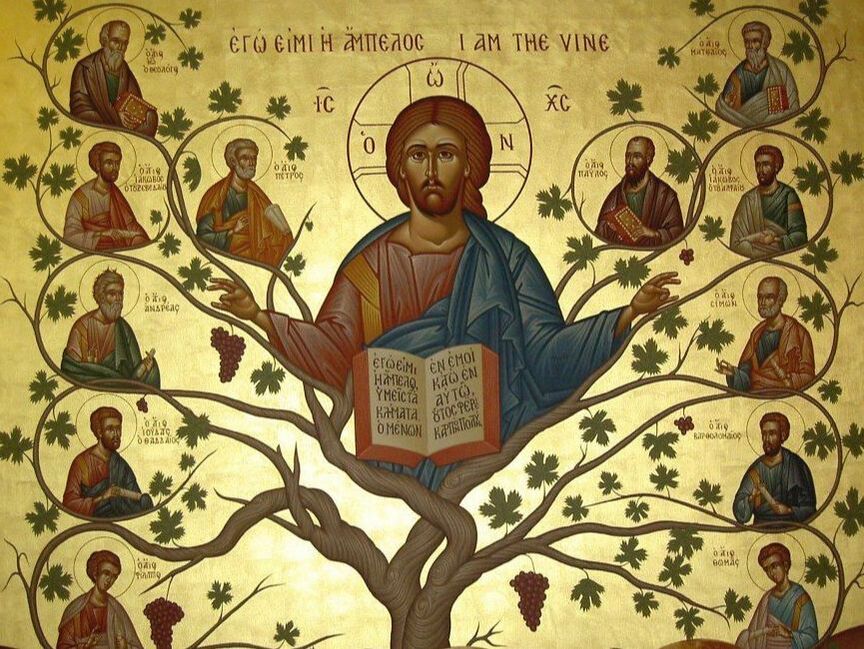
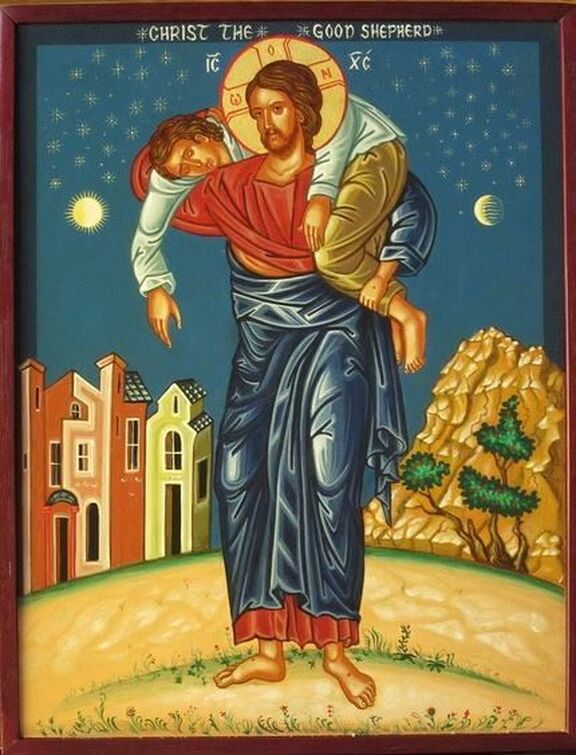
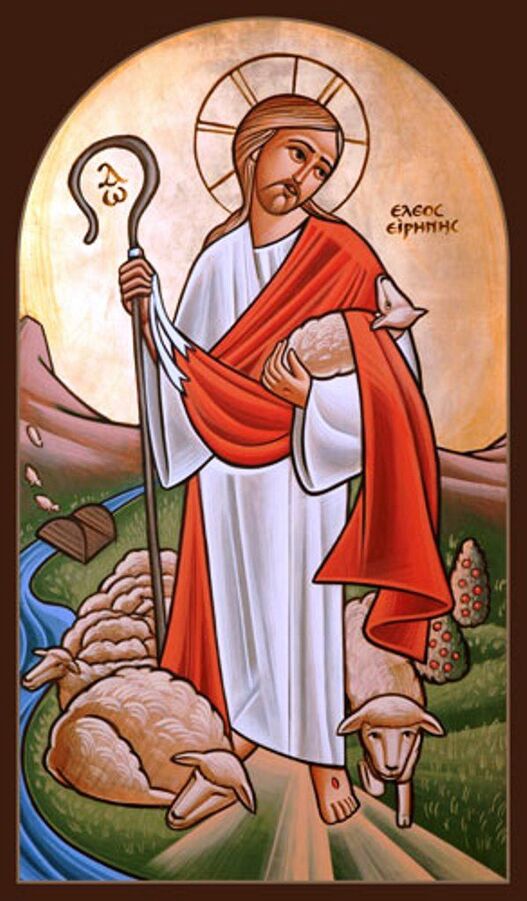

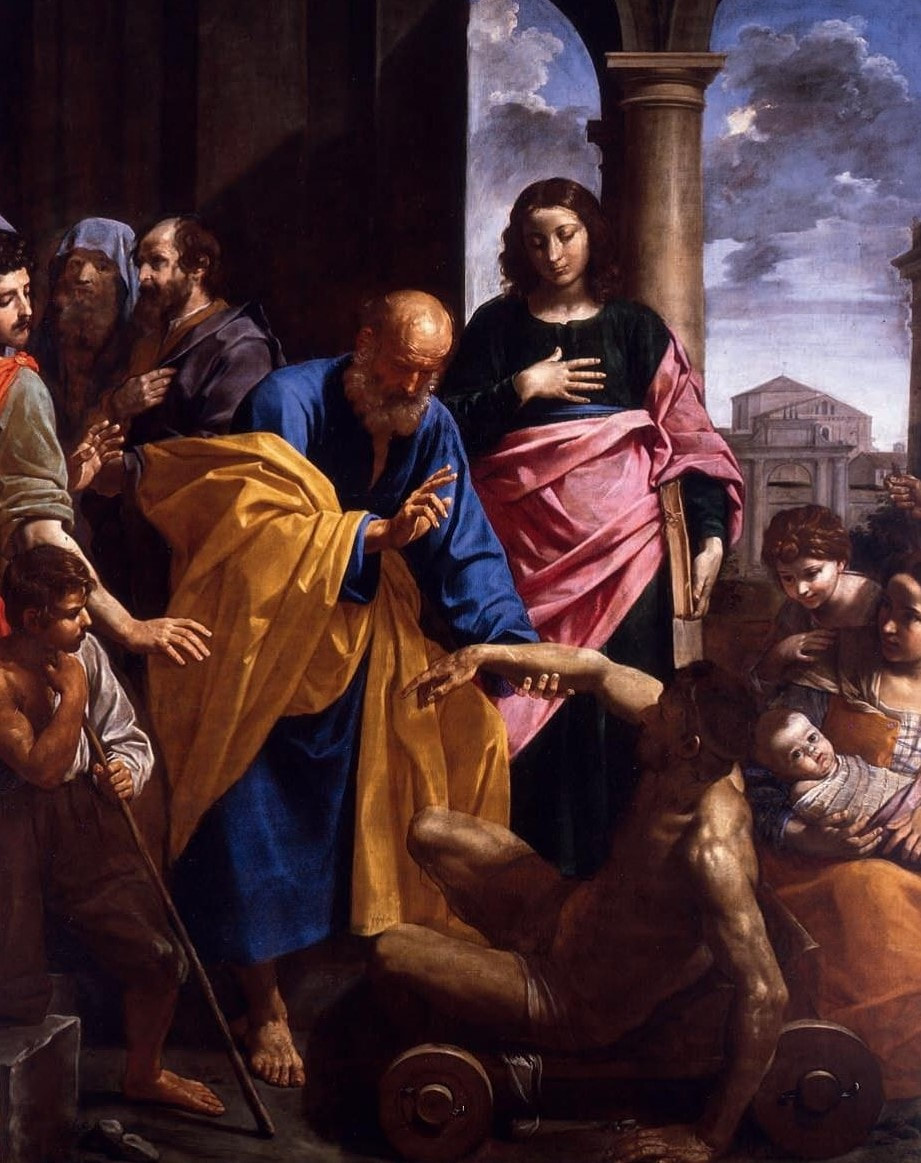
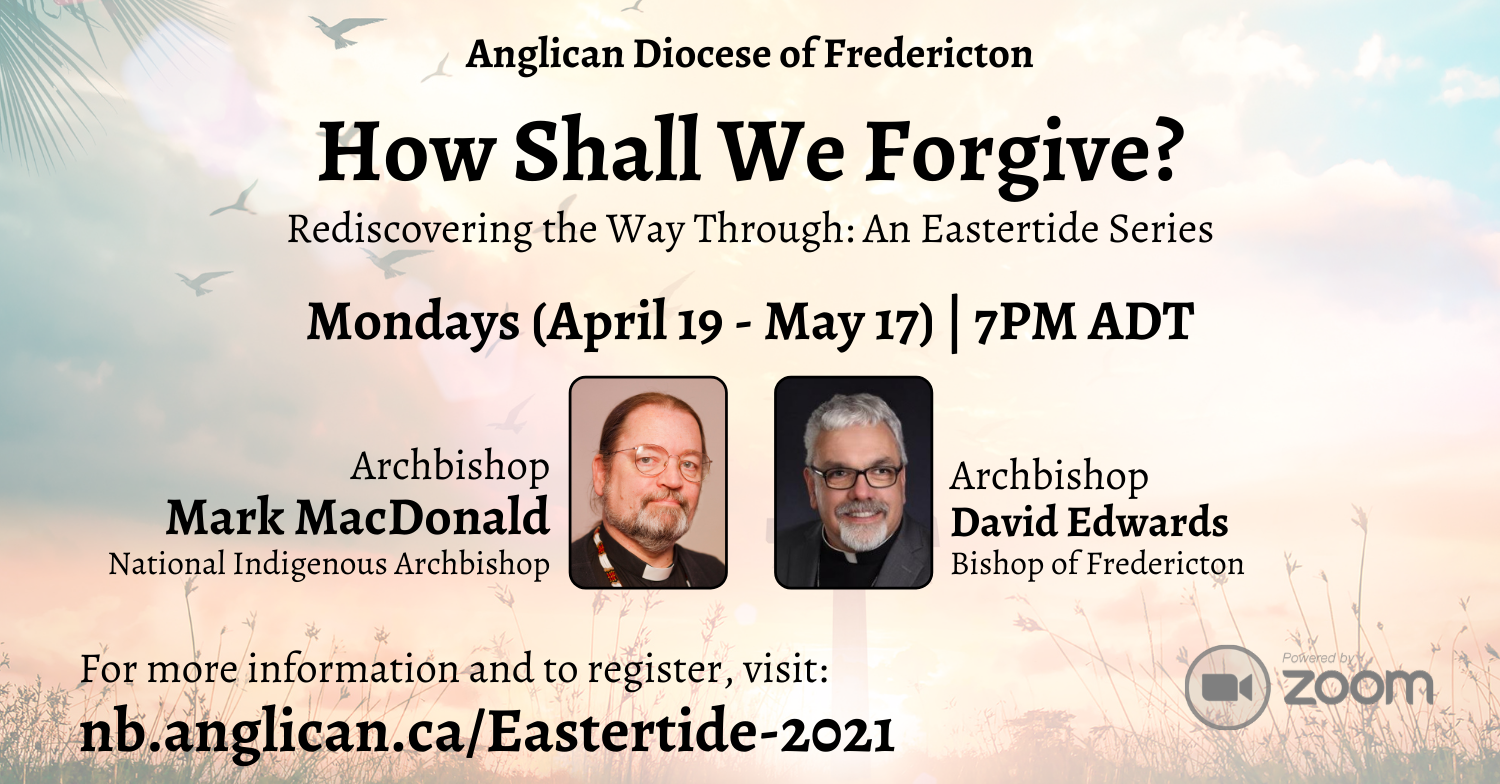
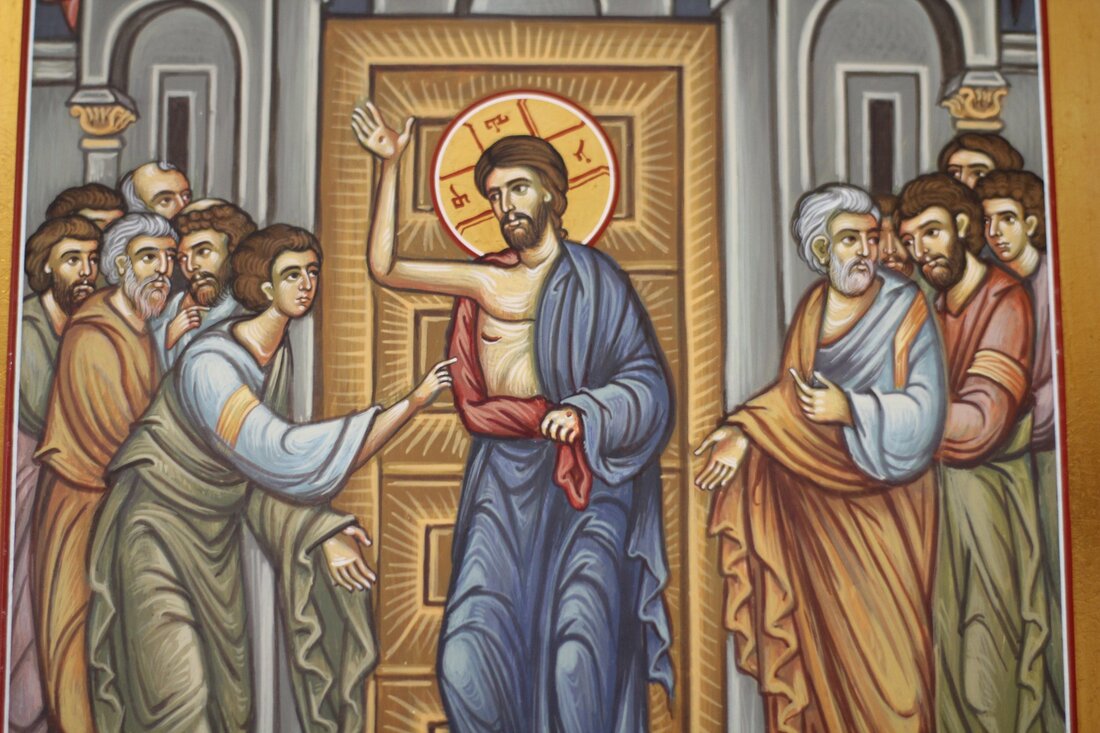
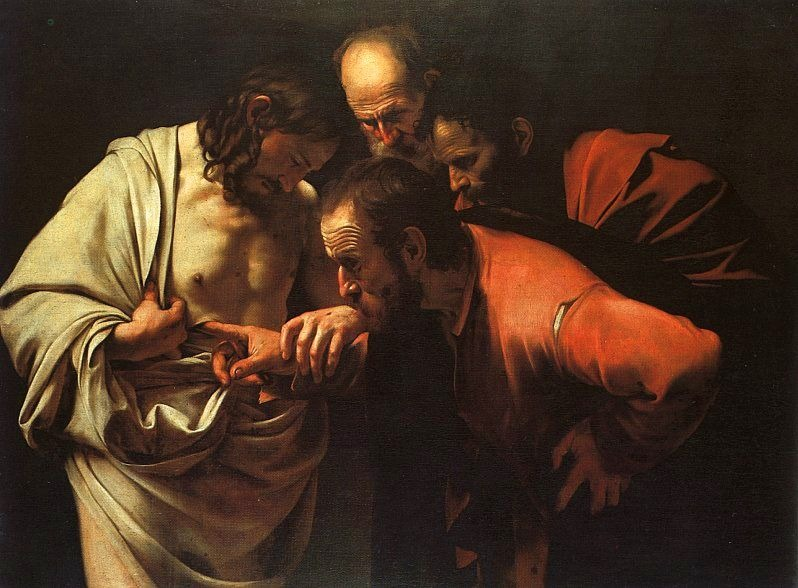

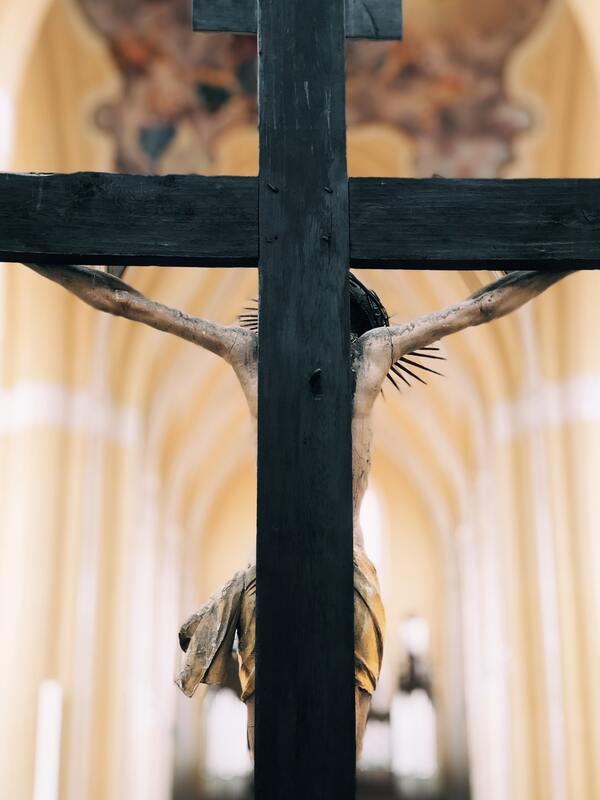
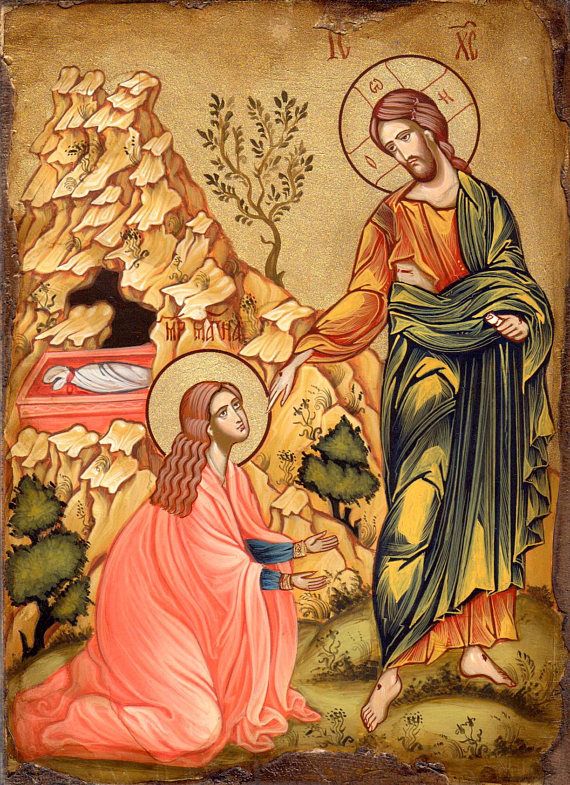
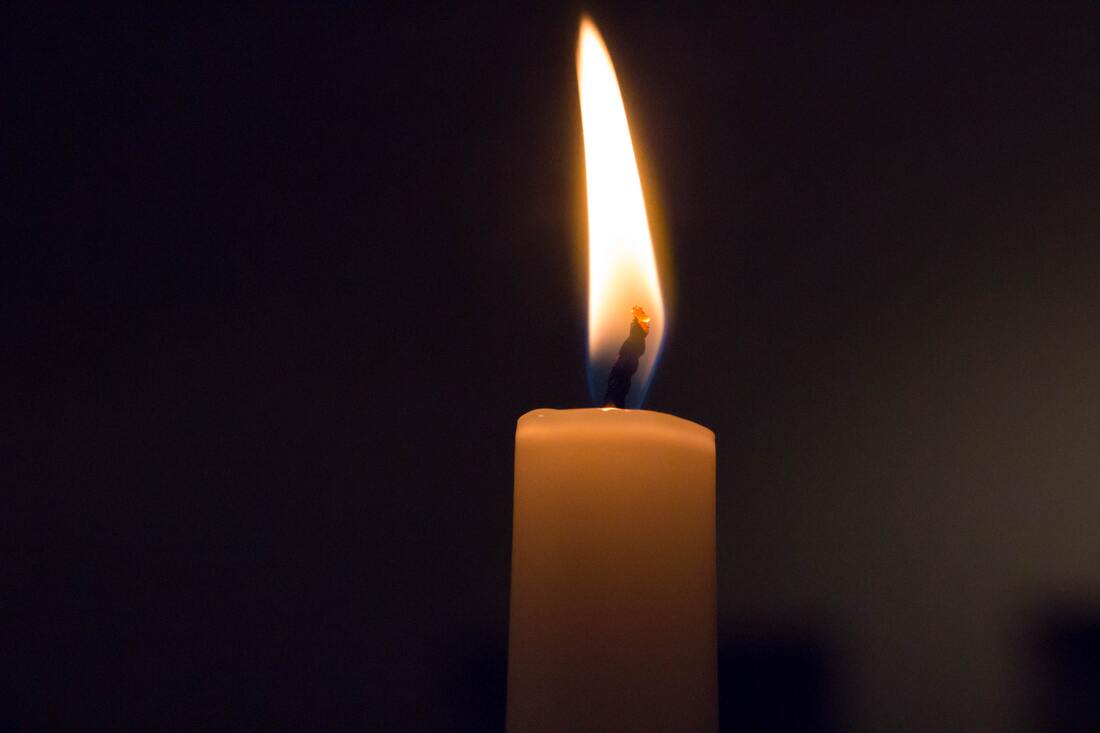
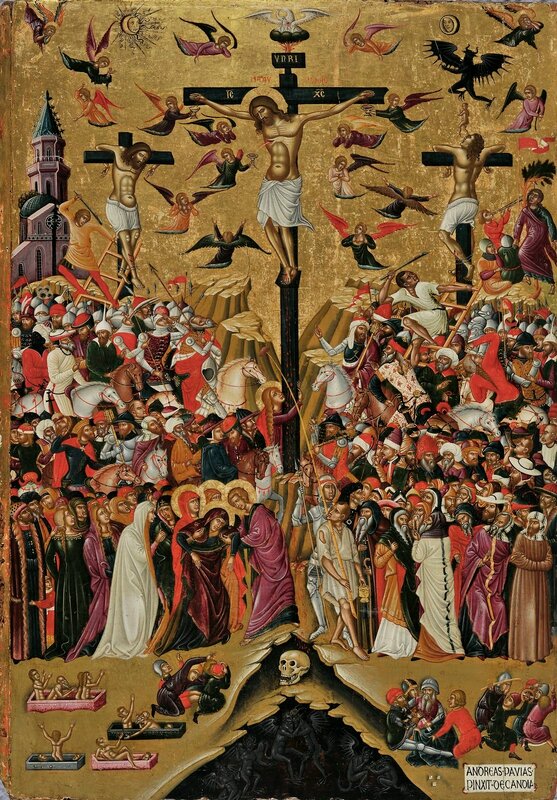
 RSS Feed
RSS Feed
